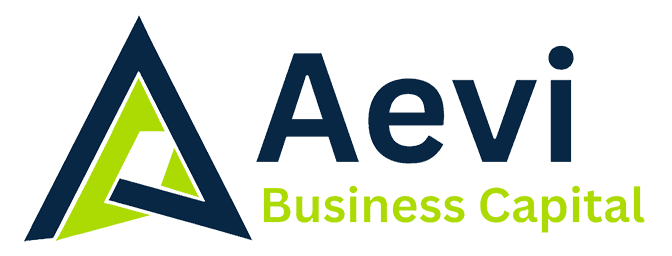
For veterans venturing into the entrepreneurial world, securing the right business loan can be a pivotal step in translating military skills into successful ventures. Military experience often equips veterans with leadership, discipline, and a strong work ethic—traits that are invaluable in business. Business loans can provide the necessary support to leverage these strengths, offering veterans a chance to launch, sustain, or expand their enterprises effectively.
However, the road to obtaining a business loan isn’t always straightforward for veterans. Many might face challenges such as understanding various loan options, meeting lender requirements, or even dealing with credit issues due to frequent relocations during service. Overcoming these hurdles requires a clear understanding of loan options and the resources available to veterans. An important term to grasp is “collateral for a business loan.” Collateral is something of value that a borrower pledges to secure a loan, providing assurance to the lender that the borrower will repay the loan or risk losing the pledged asset.
Understanding the Needs of Veteran Entrepreneurs
Veterans entering the business landscape often have unique financial needs that set them apart. These needs might include capital to start a venture from scratch, resources to pivot an existing business, or funds to manage cash flow during transitions. Industries like construction, transportation, and tech are popular among veteran entrepreneurs due to their skills and interests. These are fields where initial investments can be significant, making loans a critical tool for success.
The role of collateral in this process cannot be overstated. Veterans, like any other entrepreneurs, may need collateral to secure a business loan. This could be anything from real estate to equipment or even accounts receivable. Collateral helps reduce the lender’s risk, making it easier for veterans to access needed funding. Understanding this when applying can enhance the likelihood of securing a loan. Here’s how collateral can be helpful:
– Risk Reduction: Offers lenders assurance of repayment.
– Improved Loan Terms: Can lead to better interest rates or larger loan amounts.
– Access to More Options: Opens doors to different types of loans that might otherwise be unavailable.
By knowing what assets can serve as collateral and how to use them effectively, veterans can better prepare for discussions with lenders, positioning themselves as informed and reliable borrowers. Having a clear picture of one’s financial needs and the role of collateral is essential in navigating the lending landscape.
Types of Business Loans Suitable for Veterans
Finding the right type of business loan is crucial for veterans looking to start or grow their businesses. One popular option is the SBA Loan, which is government-backed and designed to support small business growth. These loans offer favorable terms and can be a great fit for veterans due to their lower interest rates and longer repayment terms.
VA Loans are another excellent resource, specifically tailored for veterans. They provide funds with lower qualifying criteria, making them more accessible for veterans who might have less initial capital or credit constraints. This type of loan can be a lifeline for those just starting out or transitioning into entrepreneurial roles.
Equipment financing is ideal for veterans diving into fields like manufacturing or technology. This approach helps finance new or used equipment necessary for launching or expanding a business. The equipment itself often serves as collateral, reducing the barrier to entry.
Lines of credit can be a flexible solution for managing cash flow. With a line of credit, veterans can access funds as needed, providing a financial cushion for unexpected expenses or short-term needs. This flexibility can be particularly helpful in industries with fluctuating operational costs.
How to Use Collateral for a Business Loan
Collateral can be a key player in securing a business loan, providing lenders with a safety net that enhances lending terms. Knowing what qualifies as collateral is important, as this can include real estate, machinery, inventory, or even accounts receivable. The choice of collateral can influence loan approval chances and terms.
Here’s how collateral can be effectively utilized:
1. Identify Valuable Assets: Determine which business assets might serve as collateral. This could be office equipment or company-owned vehicles.
2. Understand the Process: Work with lenders to understand how they assess collateral value and how it affects the loan terms.
3. Prepare Documentation: Have necessary documentation ready to prove ownership and value of collateral assets.
Using collateral can open doors to better loan options, larger amounts, or lower interest rates, making it a smart strategy for securing business funding.
Empowering Veteran-Owned Businesses
Securing a business loan can be a significant move for veterans, opening up opportunities that might otherwise seem out of reach. The right loan can fund necessary equipment, provide working capital, or support expansion efforts, all of which are key steps toward building a successful business.
Having the knowledge to navigate loan options and requirements empowers veteran entrepreneurs to take charge of their financial futures. By exploring different loan types and understanding the role of collateral, veterans can confidently approach lenders and explore their entrepreneurial potential fully. Taking these steps ensures they’re not only prepared to meet financial challenges but also positioned to thrive in their business endeavors.
For veterans eager to make their mark in business, understanding the intricacies of financial backing is key. Utilizing options like collateral for a business loan can not only secure necessary funding but also open doors to more favorable loan terms. Let Aevi Consulting help you navigate these opportunities and set a strong foundation for your business success.





